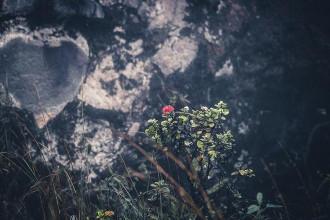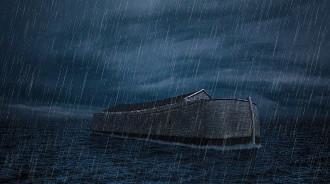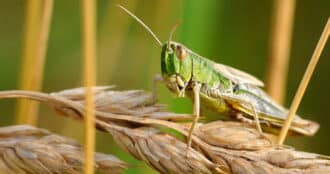By Ilana Stein – When faced with natural disasters, those who worship and believe in a loving God have a number of questions: if God created the natural world, why would He allow natural disasters to happen to human beings?
Are natural disasters acts of God? If they aren’t, why are they called this? If they are, why does God allow natural disasters to happen? Or could God prevent natural disasters? How does this fit in with the idea of a God who loves us? These, and other questions, are asked whenever a natural disaster occurs.
Are Volcanoes, Earthquakes, Storms, Fires Natural Disasters or Divine Wrath?
On 15 January 2022, the Hunga Tonga-Hunga Ha’apai volcano erupted just off the island of Tonga. It had been building up since December 2021, and now it threw up ash, steam and gas for 160 miles around, and in destroying infrastructure and homes, negatively impacted the lives of some 100,000 people on the island. People lost their lives. The Tongan government called it an “unprecedented disaster”. NASA said that it was “hundreds of times more powerful” than the first atom bomb.
How did the Tonga eruption happen in the first place? Like most such occurrences, it was a natural one. Most of the time, we know of volcanoes that are towering mountains which erupt into the air, throwing up ash and burning rock called lava. When this occurs, it is considered disastrous for any life on the mountain or in the path of the lava or ash. For example, in 1815, Mount Tabora in Indonesia erupted, killing over 10,000 people which is considered the deadliest volcano ever recorded.
But in fact, volcanoes are vital to how the Earth was formed, as they have “created more than 80 percent of our planet’s surface, laying the foundation that has allowed life to thrive”. Underwater volcanoes are less well known but equally considered natural events, where magma builds up beneath the ocean floor and then erupts outward and upward. Sometimes the movement of the Earth’s plates cause an earthquake, which in turn can cause a volcanic eruption through the Earth’s crust.
When we call something a natural disaster, it is an acknowledgement of an event that has occurred through the natural processes of the planet. However, due to its impact on humans or other life, it is termed a disaster – or, as the Oxford English Dictionary defines it: “a sudden accident or a natural catastrophe that causes great damage or loss of life”.
Are Natural Disasters Natural?
It is ironic that when natural disasters occur, people tend to term them “acts of God”. In so doing, the implication is that natural disasters are not truly ‘natural’.
It is easy then to question how a good God can allow such things to happen. If God rules the world, then why does God allow natural disasters, death or suffering? If God doesn’t, then is God truly omnipotent?
A Loving God?
The other implication is that a volcano, flood or terrible storm and any resulting suffering is not just ‘nature’ but the result of Divine wrath. This is one of the greatest challenges for believers, sometimes known as theodicy, which asks “the hard questions of life and death. For atheists and agnostics they challenge humankind’s hubris that we can control our environment—or that our cleverness can keep us from suffering. For Christians they raise the hard question of why an all-powerful, all-loving God allows such things to happen”.
One answer often offered is that God seeks a personal relationship with people, but in order to ensure that the relationship is ‘real’, the premise states that: “our world corresponds well with the existence of an all-loving, all-powerful God who so values loving relationships that he allows free will to exist even though this risks allowing humans to experience pain and suffering”. But the Bible asks the next logical question: if we use our free will for bad, what is God’s role in nature as a response?
Noah’s Flood
The story of Noah and the Flood in Genesis is one of how disasters are allowed to occur. “And God saw that the wickedness of man was great in the Earth, and that every imagination of the thoughts of his heart was only evil continually” (Genesis 6:5).
People were evil and God’s judgment was given: the whole world would be destroyed. This seems to indicate that bad things, terrible tragedies and other disasters can occur as a result of people sinning – the ‘natural evil’ of humanity, as we read in Genesis 8:21: “The Lord said, ‘Never again will I doom the earth because of humankind, since the devisings of the human mind are evil from youth'”.
The ultimate cause of a natural disaster is not natural law but humans using their free will to sin. And in extreme circumstances, even innocent people can die or suffer – by being in the wrong place at the wrong time. In a perfect world, the Bible seems to indicate, moral evil is followed by God’s judgment. Natural forces in a physical world carry out divine retribution.
The Book of Job
This idea – that all natural disasters happen because of human beings’ bad actions – is overturned in the Book of Job. Here, in the Old Testament, the questioner par excellence regarding natural disasters is a righteous man – Job. He is afflicted by all the suffering a person can endure – and is told by his wife to “curse God and die” (Job 2:9). But instead, he continues to ask the difficult questions.
The Book of Job shows that this question is a natural one for human beings to ask – but importantly also has God express an answer: “Then the LORD answered Job out of the whirlwind, and said, Who is this that darkens counsel by words without knowledge? Gird up now your loins like a man; for I will demand of you, and answer you me. Where were you when I laid the foundations of the earth? declare, if you have understanding”(Job 38:1-3).
In other words, since God created the world, nature and natural laws, it is impossible for a mere mortal to understand how God runs the world. From a human point of view, says God, bad things happen and you will never know the ultimate cause.
The New Testament echoes this with the statement that Jesus Christ holds all of nature together: “And he is before all things, and by him all things consist” (Colossians 1:17).
Human Response to Suffering
Another way to look at disasters that are not of our making is not to question “why”, but rather to ask: “what can I do to help?” In the 1500s, Martin Luther praised those who went out to help people who were suffering from the Black Death. This idea of action is something important – regardless of the nature of the disaster, humanity can and should act rather than sit immobilized and ask questions to which there are no clear answers.
It is also important to differentiate between natural disasters and those made by humanity. It is not enough to clamor about the moral evil of those who declare war on the innocents, we must react, take in refugees and do our utmost to stop the killing.
Disaster Or Wonder?
It is difficult sometimes to see the wonder within the disaster, but it is also important to understand that through natural forces, God created the perfect environment for life on Earth. For example, when there are volcanic eruptions in the ocean, the lava that is spewed out becomes islands. On these, the volcanic ash becomes fertile soil for a wealth of plants and animals to thrive on, and the climate can be cooled thanks to the ash in the atmosphere.
Another example is fire. Fire seems destructive but is vital to the survival of ecosystems such as forests or grasslands. Fire in fact “promotes vitality and new growth” and ensures healthy ecosystems on Earth.
So the natural system that maintains the whole world contains both the natural laws, the many amazing miracles, and yes, the natural events that we call natural disasters. Why then do we see fires and floods as natural ‘disasters’ today?
Natural Disasters Today
All religions do not pretend to know why natural disasters happen. However, what we do know is that today, regardless of God’s role but rather due to human activity, natural disasters are becoming more intense – and disastrous.
For example, population growth over the centuries means that when a volcano erupts, there are more people to be affected than in the past. On islands like Tonga, people have no choice but to build their homes wherever there is space – and often that is close to a volcano. Today, with hundreds of millions of people living on the planet, when most natural disasters happen there is horrendous devastation, impacting human life negatively, which can transform the natural event into a disaster.
In addition, due to climate change, we are experiencing more extreme weather conditions, from increased heat to increased risk of flooding. As climate scientists warn, “climate change is generating more moisture in the atmosphere. This is increasing the amount and intensity of rain that falls during hurricanes and other storms. … In brief, warmer water and moister air that stem from climate change are contributing to the record-breaking catastrophic flooding we are seeing”.
In a nutshell, this could be called “self-destructive behavior”: “…it feels qualitatively different when we actually know such damage is a self-inflicted wound—when we actually do have enough knowledge, understanding, scientific evidence and data to recognize that our own actions and habits as a human collective are increasing our risk of local and global disasters”.
Natural Disaster OR Apocalypse?
It is the wrong actions of people in their heavy usage of the Earth that in fact has caused much of the ‘disaster’ in natural events. And yet, as Rabbi Yonatan Neril writes, “only 49% of white evangelicals in America said in a poll that they thought natural disasters were caused by climate change. By comparison, 77% stated that “the severity of natural disasters is evidence of what the Bible calls ‘the end times’ (the apocalypse)'”.
Such individuals look to a time at which point people will no longer be suffering, where there will be no more pain, and where all will be good. But by seeing such events as an “act of God”, people are removing themselves from the equation of life on Earth. They can consider with equanimity that they are not accountable for what is happening around them. If God allowed the terrible tragedies, they reason, it’s nothing to do with our actions on this planet, or our burning of fossil fuels, our spewing of pollution into the air and water or our throwaway society.
But as Job and Noah have shown us, the Bible concludes that the answers are not simple. Physical actions have consequences in a physical world, and the ultimate cause of a disaster is not something we can know with certainty.
In conclusion, we don’t know why God causes natural disasters, but we do know why people cause disasters. As the Eco Bible states: “Ecological disasters and COVID-19’s devastating spread are causing the tragic loss of so many lives as well as a profound disruption of natural ecosystems, families, communities, cultures, and the populations of entire nations”.
It is not enough to trust God or consider a particular sin. If we want to protect people and the wondrous world around us, we must look at our actions, and not merely in terms of moral evil but in the havoc we have wreaked in nature. If we are to join God in an effort to prevent natural disasters, we need to change our own actions. We need to take responsibility for all of our actions.
God created humanity as a partner, to benefit from and yet to protect the physical world; “The Lord God put the human in the Garden of Eden to work it and to guard it” (Genesis 2:15).
We need to own our natural disasters.
* Featured image source




